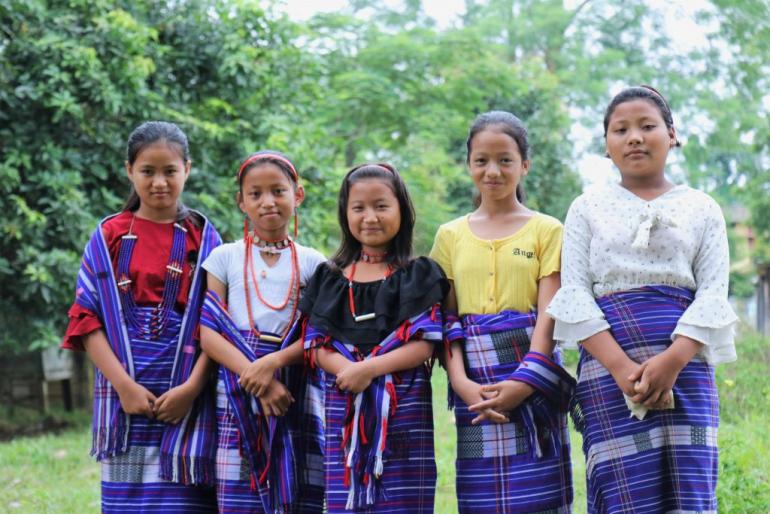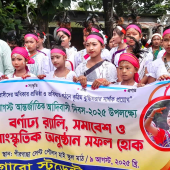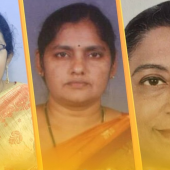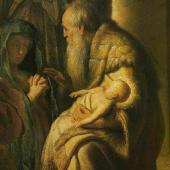International Day of the World's Indigenous Peoples

Every year on August 9, the International Day of the World's Indigenous Peoples is observed.
In its resolution 49/214 on December 23, 1994, the United Nations General Assembly decided that the International Day of the World's Indigenous Peoples would be observed on August 9, every year. The date marks the 30th anniversary of the first meeting of the United Nations Working Group on Indigenous Populations in 1982.
This year's theme is "The Role of Indigenous Women in the Preservation and Transmission of Traditional Knowledge."
Background
Indigenous women are the foundation of indigenous communities and play an important role in the preservation and transmission of traditional ancestral knowledge. As stewards of natural resources and keepers of scientific knowledge, they play an important collective and community role. Many indigenous women are also leading the defense of lands and territories, as well as advocating for indigenous peoples' collective rights around the world.
The importance of indigenous peoples' traditional knowledge is widely acknowledged: "Long before the development of modern science, which is quite young, indigenous peoples developed their ways of knowing how to survive as well as ideas about meanings, purposes, and values." The term "scientific knowledge," as noted by the Special Rapporteur on Indigenous Peoples, is also used to emphasize that traditional knowledge is contemporary and dynamic, and of equal value.
According to international consultations facilitated jointly by UNESCO and the Internal Council of Science (ICSU), "Traditional knowledge is a cumulative body of knowledge, know-how, practices, and representations maintained and developed by peoples with long histories of interaction with the natural environment." Language, naming and classification systems, resource use practices, ritual, spirituality, and worldviews are all part of a cultural complex."
Despite the important role that indigenous women play in their communities as breadwinners, caregivers, knowledge keepers, leaders, and human rights defenders, they frequently face intersecting levels of discrimination based on gender, class, ethnicity, and socioeconomic status. Over centuries, their right to self-determination, self-governance, and control over resources and ancestral lands has been violated.
Indigenous women have made small but significant gains in decision-making processes in some communities. They are local and national leaders who are on the front lines of defending their lands, cultures, and communities. However, the reality is that indigenous women are vastly under-represented, disproportionately harmed by decisions made on their behalf, and is far too frequently victims of multiple forms of discrimination and violence.
The Committee on the Elimination of All Forms of Discrimination Against Women (CEDAW) highlighted some of the major issues faced by indigenous women, highlighting high levels of poverty, low levels of education and illiteracy, barriers to health, basic sanitation, credit, and employment, limited participation in political life, and the prevalence of domestic and sexual violence.
As the world celebrates the International Day of Indigenous Peoples, government agencies, civil society groups, institutions, organizations, and people from all walks of life are invited to hold conversations and events to share expertise and experience from their indigenous communities in preserving, reviving, retaining, and transmitting traditional ancestral knowledge in various fields of communal activities, including but not limited to effective and sustainable climate change adaptation.
These questions might help for fruitful discussions:
- What is indigenous women's unique role in the preservation and transmission of traditional knowledge?
- What are some of the most promising examples of indigenous women-led processes for resolving contemporary global issues using traditional scientific knowledge?
- How important are indigenous languages for the development, preservation, and transmission of indigenous cultural and knowledge systems?
- How are women paving the way for the preservation of indigenous languages?
- How effective was the use of indigenous scientific knowledge and medicine in mitigating the Covid-19 crisis?
Radio Veritas Asia (RVA), a media platform of the Catholic Church, aims to share Christ. RVA started in 1969 as a continental Catholic radio station to serve Asian countries in their respective local language, thus earning the tag “the Voice of Asian Christianity.” Responding to the emerging context, RVA embraced media platforms to connect with the global Asian audience via its 21 language websites and various social media platforms.














